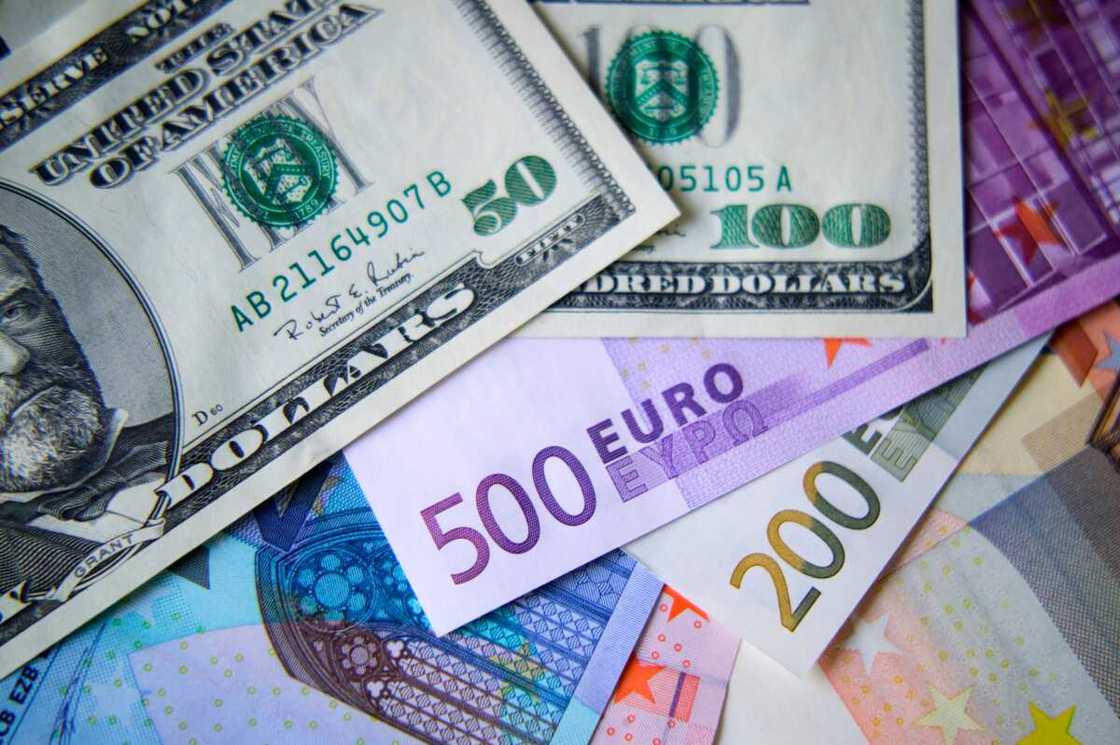Foreign Investors Run Away From 28 States as Lagos Leads With Highest Investment in 3 Months
- About 28 states in Nigeria could not attract Foreign Direct Investment from January to March of 2023
- The top states with the highest Foreign Direct Investment are Lagos, FCT, Akwa Ibom, Anambra, Ogun, and Ondo, among others
- Most of the capital imports came majorly into the banking sector in the period under review
According to new Foreign Direct Investment data released by the National Bureau of Statistics, 28 states could not attract Foreign Direct Investment in the quarter of 2023.
Of the 36 states in Nigeria and FCT, only Lagos, Abuja, Adamawa, Akwa Ibom, Ekiti, Ogun, Ondo, and Niger states saw capital inflows during the period under review.

Source: Getty Images
Top Nigerian states with the highest foreign inflow
The total capital inflows totaled $1.13 billion. Lagos attracted $704 million in investment under review, followed by Abuja with $410 million, and Akwa Ibom at $5.21 million.
PAY ATTENTION: Сheck out news that is picked exactly for YOU ➡️ find the “Recommended for you” block on the home page and enjoy!
Anambra received $4.50 million in foreign investment, Ogun received $2.09 million, Niger received $1.50 million, Ondo received $0.20 million, and Ekiti saw $0.01 million foreign investment in the first three months of 2023.
The report read:
"By destination of investment, Lagos State remained the top destination in Q1, 2023 with $704.87m, accounting for 62.23 per cent of total capital investment in Nigeria. Abuja followed this, valued at $410.27m (36.22 percent)."
The NBS revealed a 28% decline in total capital inflow compared to the first quarter of 2022.
"Total capital importation into Nigeria in Q1, 2023 stood at $1.13bn, lower than $1.57bn recorded in Q1 2022, indicating a decrease of 28 per cent. Capital importation rose 6.78 percent from $1.06bn in Q4 2022 compared to the preceding quarter."
Banks witness highest investment in three months
Portfolio investment was the most significant capital inflow during the period under review, accounting for 57.32% and totaling $649.28 million of the total capital imports in Q1 of 2023.
Other investments followed with 38.31%, accounting for $435.76 million, and Foreign Direct Investment with 4.20$, accounting for $47.60 million.
A breakdown by sectors revealed that capital imports into the banking sector recorded a heightened inflow of $304.56 million, representing 26.89% of the total capital inflow in Q1 of 2023.
Imported capital into the production sector followed at $256.12 million, representing 19.08%, and IT Services with $216.6 million, representing 19.08%.
The top investor country remains the United Kingdom in the period under review.
"Capital importation by country of origin reveals that capital from the United Kingdom ranked top in Q1, 2023 with $673.64m, accounting for 59.47 per cent. This was followed by the United Arab Emirates and the United States valued at $108.28m (9.56 per cent) and $95.36m (8.42 per cent), respectively."
"Categorisation of Capital importation by banks shows that Citibank Nigeria Limited ranked top in Q1, 2023 with $424.13m (37.45 per cent). This was followed by Standard Chartered Bank Nigeria Limited with $360.33m (31.81 per cent) and Stanbic IBTC Bank with $151.85 (13.41 per cent)," the NBS report stated.
Analyst weigh in on reasons for slowed FDI
John Idoko, a top investment banker, told Legit.ng that the banking sector witnessed a robust FDI primarily because of the excellent credit ratings of most banks.
"Except for a few downgraded by top rating agencies early this year, most banks have performed creditably well."
When asked about Nigerian banks' exposure to Ghana's debt default, Idoko said the banks already mitigated the vulnerability risk and sailed through relatively smoothly.
"If you look at the banks' books and their financials in Q1, you will notice that they already plugged the holes," Idoko stated.
Foreign investors ignore Delta, Ogun, Kano, 24 Other Nigerian states in 2022, invest $5.3bn elsewhere
Legit.ng reported that the National Bureau of Statistics (NBS) has revealed that foreign investors brought $5.3 billion into Nigeria in 2022.
The NBS disclosed this in the fourth quarter capital importation report, published on Tuesday, April 4, 2023.
Checks by Legit.ng show that the amount of foreign capital attracted in 2022 is the lowest in six years and a significant drop of $1.4 billion compared to the $6.7 billion capital inflow recorded in 2021.
Source: Legit.ng


